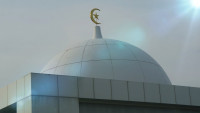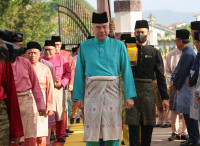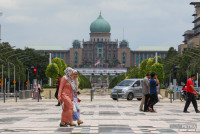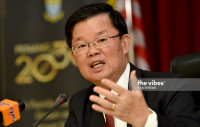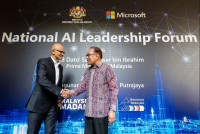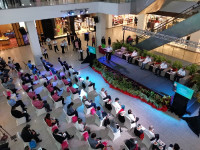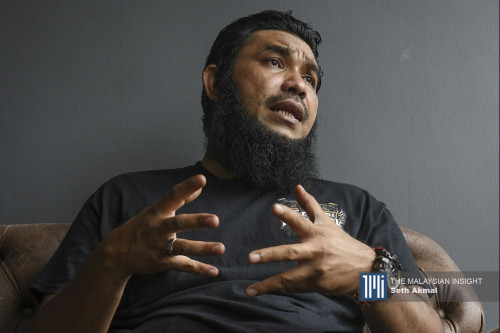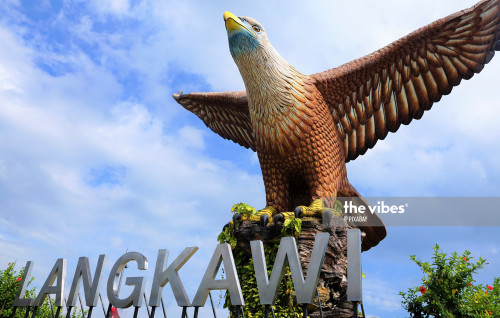THE term “hijrah” on the surface refers to the journey undertaken by the Muslims and Prophet Muhammad (PBUH) in the year AD 622 from Mecca to Medina.
In a broader sense, hijrah means change or transformation of mindset towards something better. Therefore, hijrah should not be interpreted literally or limited to the physical movement of Prophet Muhammad (PBUH) from Mecca to Medina. This physical movement was just one phase of a larger demand for a greater migration in the aspiration and effort to propagate the message of Islam.
Indeed, the implied philosophy of hijrah is greater than the explicit event of hijrah. The community needs to view hijrah with a broader interpretation, with a lens capable of unravelling the wisdom in its entirety, appreciating both the implicit and explicit spirits, that humans are required to undertake a broader and more comprehensive hijrah – throughout time and ages.
When Angel Gabriel was commanded by Allah to convey the first revelation to Prophet Muhammad (PBUH), the Arab society in Mecca and its surrounding areas were in a state of ignorance. Prophet Muhammad (PBUH) was born 537 years after the ascension of Jesus to the heavens in AD 33 – during a time of evident ignorance, widespread corruption, and rampant immorality. Idol worship was widespread, with around 360 idols around the Kaaba alone.
The first revelation conveyed by Gabriel to Prophet Muhammad (PBUH) means: “Read in the name of your Lord who created – created man from a clinging substance. Read, and your Lord is the most generous – who taught by the pen – taught man that which he knew not.”
This first revelation implicitly contains the elements of a call for a hijrah of the mind and culture. Prophet Muhammad (PBUH), who was illiterate, was called and guided to read – to read through the benevolence of Allah, who bestows knowledge, upon humanity through the pen and writing that which humans do not know.
Indeed, the primary task of Prophet Muhammad (PBUH) was to strive to call upon the community to undertake a hijrah of the mind and culture, to migrate from a state of ignorance to a state of knowledge.
Through the revelations, knowledge was bestowed by the divine over 22 years, 2 months, and 22 days, with the aim of taking the society out of the darkness of ignorance into the light of truth, liberating people from the culture and mentality of slavery to fellow humans, and dedicating themselves solely to the worship of the one Allah. The message of Islam remains relevant despite changing civilisations.
The migration of Prophet Muhammad (PBUH) was a historic event that successfully laid the foundation for the future orientation of Islam. It contained strategic values of renewal that transformed the paradigm and thinking patterns of the community, proving that Islam introduced comprehensive teachings that touched all dimensions of human life, not just ritual worship, but also carried a social vision in developing human civilisation.
Prophet Muhammad (PBUH) introduced Islam’s vision and mission as “a mercy to all worlds,” meaning a mercy to all creations. Islam was spread with values of love, harmony, and tolerance, spreading knowledge and good deeds, successfully strengthening faith to establish justice and truth based on the rule of law, thus creating a magnificent Islamic civilisation.
The concept of mercy for all worlds entailed a harmonious way of life based on pure morals. These pure morals successfully instilled faith and changed human thinking from polytheism to monotheism, resulting in the establishment of a new society in Medina – governed by systems of governance, kingship, legislation, justice, economics, trade, and business that reflected humaneness and justice based on the law and devotion to the oneness of Allah, awakening the realisation that every action in this world will be judged on the Day of Resurrection when all humans are gathered on the Field of Judgment.
The path of hijrah was revealed by Allah to bring humanity to a great civilisation of life that worships Allah, as stated in verse 10 of Surah Az-Zumar, meaning: “Say ˹O Prophet, that Allah says˺, “O My servants who believe! Be mindful of your Lord. Those who do good in this world will have a good reward. And Allah’s earth is spacious. Only those who endure patiently will be given their reward without limit.”
The phrase “the earth of Allah is spacious” should be interpreted in a broader sense, not just referring to geographical space but encompassing the expansiveness of knowledge, technology, innovation, creativity, and various other aspects.
The event of migration of Prophet Muhammad (PBUH) Sallallahu Alai Wassalam and his companions that happened 1445 years ago will not recur, but the spirit and willingness to undertake migration must continue to be internalised, serving as a source of inspiration and cultivated within the soul of every individual, especially when navigating the waves of the ever-changing world.
We are now in the 21st century, an era witnessing technological advancements that enable people to transcend boundaries. Thus, we must view the world with a broader perspective and an optimistic mindset. We need to be willing to embrace the present reality and abandon outdated traditions and interpretations to break free from ignorance. The community cannot evade the changes occurring as change is a natural phenomenon. The community must be prepared at all times to face change, for it is a decree of Allah that will inevitably happen.
The world and everything within it is subject to change, including approaches, perspectives, visions, systems, concepts, theories, and more. Hence, migration is a manifestation of the need for renewal, aligning with the changes in civilisation and time.
The Prophet Sallallahu Alaihi Wassalam reminded us that migration is an ongoing process until the Day of Judgment, as mentioned in the hadith narrated by Ahmad: “Migration will not cease as long as repentance is accepted, and repentance will continue to be accepted until the sun rises from the west.”
Changing or migrating is not as easy as it may seem – it requires knowledge as a foundation. Renewal in accordance with divine guidance does not occur without guidance, but through Allah’s mercy, a “mujaddid” (reformer) will be sent to help the community to renew their lives with a fresh perspective that aligns with the current situation, yet rooted in the Quran and Hadith.
The Prophet Sallallahu Alaihi Wassalam said, as narrated by Abu Hurairah Radiallahu Anhu: “Verily, Allah sends at the end of every century someone who renews His religion.”
The increasingly complex challenges necessitate a change of mindset and cultural adaptation to meet the demands of the time while staying true to the principles of monotheism to avoid deviating from the true interpretation of life. Muslims must be ready, even obligated, to undergo a migration of the mind and culture, enabling them to understand and interpret contemporary issues from various dimensions and empowering them to tackle and master current situations, especially the rapid technological revolution.
A migration of the mind requires breaking free from ignorance and comfort zones. It requires courage to explore new knowledge, skills, mediums, and methods in line with the needs of the time. A mind eager for progress, a wise and rational mind, a liberated mind that is not subservient, and a mind unafraid of change are all essential for a successful migration.
Cultural migration involves being willing to leave behind obsolete and decayed cultures and embracing a more dynamic culture that reflects noble character, discipline, dignity, honesty, sincerity, and adheres to Islamic principles and values.
Hijrah or migration is a form of jihad, and those who migrate in the path of Allah will attain success and a better life, as Allah says: “Whoever emigrates in the cause of Allah will find many safe havens and bountiful resources throughout the earth. Those who leave their homes and die while emigrating to Allah and His Messenger – their reward has already been secured with Allah. And Allah is All-Forgiving, Most Merciful”.
On the occasion of the first day of the Hijrah year 1445, we humbly seek guidance and direction from You, O Allah. We, who are weak, implore that the ummah, especially your ummah on this earth, embark on a migration of the mind – from a culture of enmity to a culture of friendship, from a culture of disputes to a culture of peace, from a culture of vengeance to a culture of forgiveness, from a culture of empty promises to a culture of fulfilling commitments, from a culture of seeking weaknesses to a culture of uniting strengths, from a culture of spreading discord to a culture of upholding the truth, from a narrow-minded culture to a broad-minded culture, from an ummah that is hypocritical to an ummah that is devout.
May this ummah become respected and esteemed among fellow human beings, and may they be honoured in Your sight. Oh Allah, Lord and Ruler of the heavens and the earth, we submit to You. Guide us to the straight path – the path of those whom you have favoured. Grant us and the entire community of Muhammad Sallallahu Alaihi Wasallam goodness in this world and the hereafter.
Indeed, You are the Most Forgiving, the Most Compassionate, and the Owner of the praiseworthy Throne. – The Vibes, July 19, 2023
Sultan Nazrin Muizzuddin Shah Ibni Almarhum Sultan Azlan Muhibbuddin Shah Al-Maghfur-Lah is the Sultan of Perak



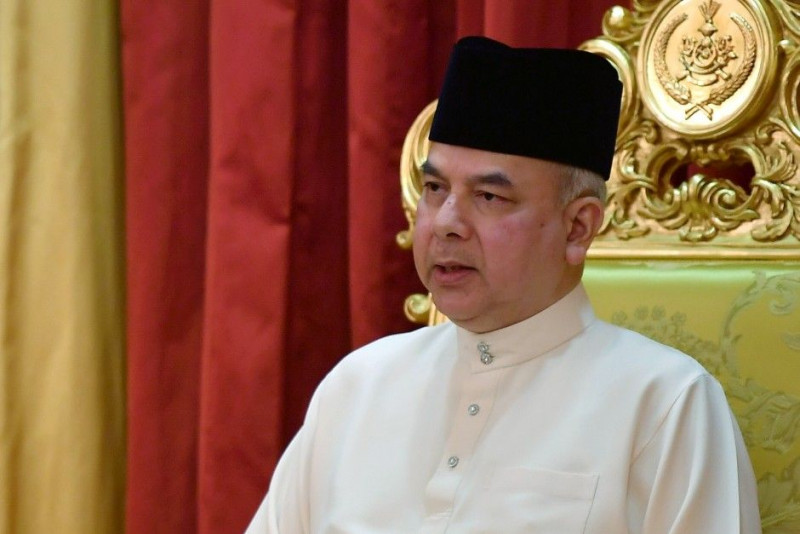
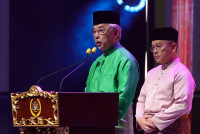
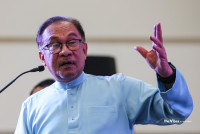
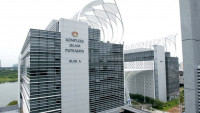
__Mohd_Nor_Khalid_(L)_-_@bernamadotcom_Twt.jpeg)
